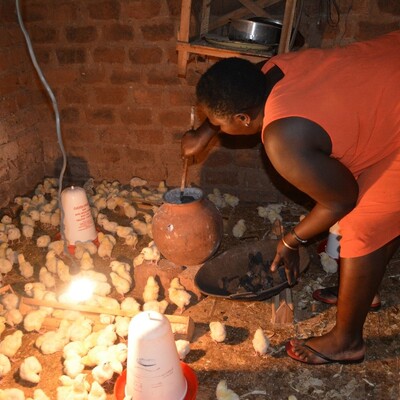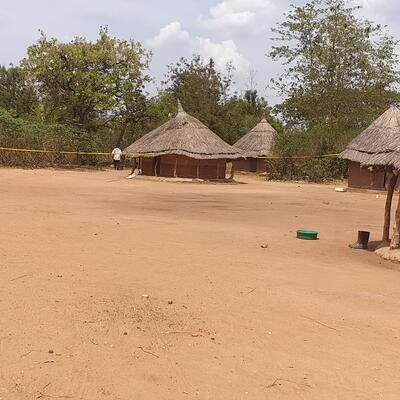
BUILD’s Velma Kivali wins ‘Women in Livestock Research’ category in the 2021 CapDev Grand Challenge
Velma Kivali is a PhD fellow with the Building Uganda’s Investment in Livestock Development (BUILD) program. She was announced winner of the ‘Women in Livestock Research’ category at the 2021 International Livestock Research Institute (ILRI) CapDev Grand Challenge on 16 March 2021. The CapDev Grand Challenge is a contest which aims to enable next-generation scientists to pitch their research findings to a panel of non-scientific judges.
Below are her thoughts about winning the challenge, lessons learned and her special message to women researchers.
Congratulations Velma on being announced winner of the ‘Women in Livestock Research’ category at the recently held CapDev challenge! How do you feel about this achievement and what does it mean for you?
I am so excited to emerge top in the Women in Livestock Research category. This achievement provides a platform and an opportunity for me to not only share more about the research I am doing, but also the research we are doing in the Veterinary Public Health (VPH) team and the BUILD Uganda project as a whole.
Did you always want to be a researcher?
Growing up, I wanted to become a doctor. I just did not know what kind of doctor. When I did not become a medical doctor, I knew I had to become a researcher because I wanted to make a positive contribution to people’s lives.
Tell us about your work
I am working on pork safety and occupational health for meat handlers in the pork value chain in Uganda. Uganda is ranked first in East Africa in pork consumption, yet the levels and possible effects of contaminated pork on people’s health remains largely uninvestigated. I am working in five districts across the country collecting samples from pigs presented for slaughter, their carcasses and pork, at points of retail, and from people working in the slaughter and retail facilities. BUILD Uganda will carry out laboratory analyses to determine the presence and levels of bacteria in these samples. The findings will indicate levels of contamination at different points in Uganda’s pork value chain, providing useful data for control and mitigation of cross-contamination in the value chain. This information will be used by stakeholders and policymakers to reduce the risks of food-borne diseases.
What was your experience in preparing for the CapDev challenge?
It was a good learning experience. I already had a very good understanding of the project I am implementing. So, I made a small write up when I was preparing my pitch, which served as a guide. I then kept practicing my pitch with a colleague and alone in the run up to the challenge. The first presentation via FaceCruit did not go so well because of internet connectivity problems and I almost gave up. The subsequent pitch on Zoom was successful and I am glad I persisted.
What were some of the greatest challenges you experienced during the preparation period?
Summarizing a whole proposal into a three-minute pitch was not an easy task. I therefore made sure that I highlighted the key elements that the judges were looking for. For instance, I ensured that the objectives of my research were well articulated as well as how I will achieve them. I also had to mention how we shall work with key stakeholders to ensure that the outcomes of this research have an impact in improving lives.
Any lessons learned?
From this contest, I have learned the importance of communicating science in a clear and a concise manner to a mixed audience. I now know that the world out there is very much interested in knowing the research that we do and how this will be beneficial to people. I now look forward to the next 10 months and the 10 soft skills courses that have been lined up because I believe I am going to learn much and these skills will be essential as I progress in my research career.
What advice would you give to someone starting on the CapDev Grand Challenge journey, especially female researchers?
You can! Believe in yourself and be passionate about the research you are doing. This year’s CapDev Grand Challenge awardees list is full of aspiring young female scientists which is really encouraging . This shows that we can do it ! So next time there is a call, give it try and do your best. This not only builds your confidence, but it gives you an opportunity to start a learning process that will go a long way in shaping your future research career.
Learn more about capacity development at ILRI.
Learn more about the BUILD Uganda project.








